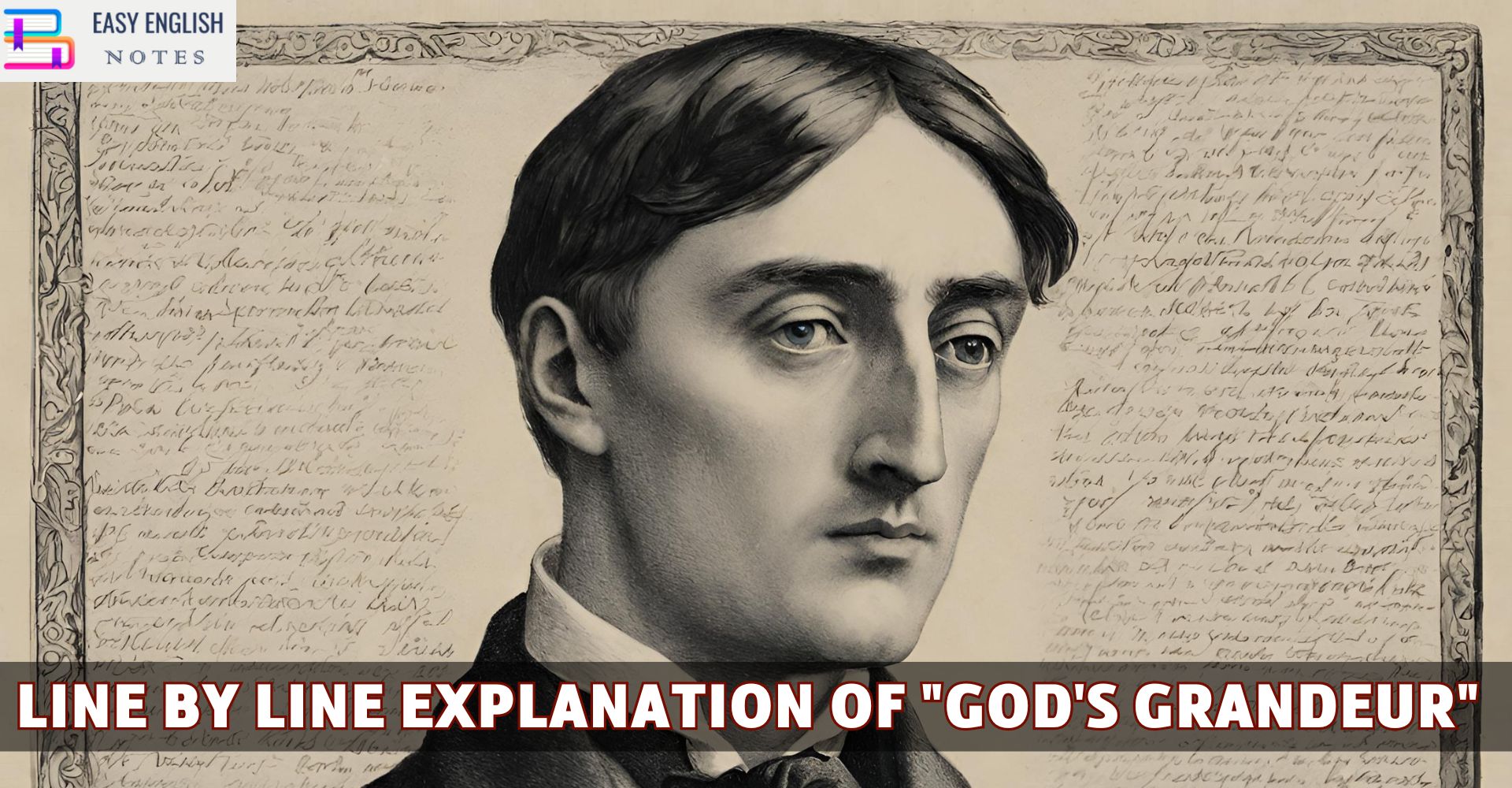Expl. (1) The world is charged with the grandeur of god.
It will flame out like shining from shook foil;
It gathers to greatness,
like the ooze of toil Crushed
why do men then now not reck its rod ?
These lines have been taken from the sonnet ‘God’s Grandeur’ written by Hopkins. Hopkins was a poet of the Victorian age, but his poems could be appreciated only in the thirties of the 20th century. It was due to his spiritual tension, revolutionary poetic measure and hatred of industrialism etc. that his contemporaries could not praise him. He was recognised much later like Donne, the leader of the 17th century Metaphysical poetry.
Also Read :
- Compare Hamlet with Macbeth, Othello and other Tragedies
- “The Pardoner’s Tale” is the finest tale of Chaucer
- Prologue to Canterbury Tales – (Short Ques & Ans)
- Confessional Poetry – Definition & meaning
- Line By Line Explanation Of The Poem The Eve of St. Agnes
In the present lines the poet says that the whole world is charged with the greatness of God. His glory is visible everywhere. It flames out like the shining of the shaken foil’. It comes out bit by bit from every nook and corner of the creation. And taken together, they form this greatness a vast spectacle. Just as oil in the mill, where seeds are crushed, gathers drop by drop and collects into a mass, so is the glory of God visible everywhere in pieces and they become a miracle like greatness. It is very surprising why, even after this power of God’s grandeur, people do not have their moorings in Him, and why do they feel inclined to get their world commercialised and industrialised.
(2) Generation have rod, have rod, have trod;
And all is seared with trade; bleared; smeared with toil,
And wears man’s smudge and shares man’s smell, the soil
Is bare now, nor can foot feel being shod.
These lines have been taken from Hopkin’s sonnet ‘God’s Grandeur’. In the foregoing lines the poet has presented the power and glory of God which is percolated in every aspect of nature. But he feels surprised and pained why people seem to have their learning towards industrialisation. “le says that generations of human beings have been labouring hard for aterial comfort for themselves and now they have succeeded. The life on earth is now of industrial and commercial type. Labour and toil have filled our life. Pleasures of nature are almost forgotten. Now life is predominated by man’s labour and bad smell coming out of it. The soil. at’s the earth, is bare of nature’s joy. We do not feel the presence of nature of all. Our life has been fully merchanised. He deplores this trend in life.
(3) And though the last lights off the black west went
Oh, morning, at the brown brink eastward, springs-
Because the holy Ghost over the bent
World broods with warm breast and with ah ! bright wings.
These are the concluding lines of the sonnet, ‘God’s Grandeur’ by GM. Hopkins. In the present lines the poet’s everlasting faith in God’s glory has been expressed. He deplores the commercialisation and industrialisation of the world at large. He feels that nature’s pleasures are not exhausted. They are still staying in ‘deep down things”. Though the sun has gone to set in the west, it is sure to rise again in the East after sometime. The poet means to say that though life in the world has been undesirably encumbered by mechanisation, and all hopes seem to come to an end, yet it is not the final picture. The morning is sure to usher in new lights. It is because God is merciful to the world and He looks at us with warmth of love. He has not gone to sit a place but He would fly back to us with bright wings. It sounds like Shelley’s hope-‘if winter comes, can spring be far behind.”











